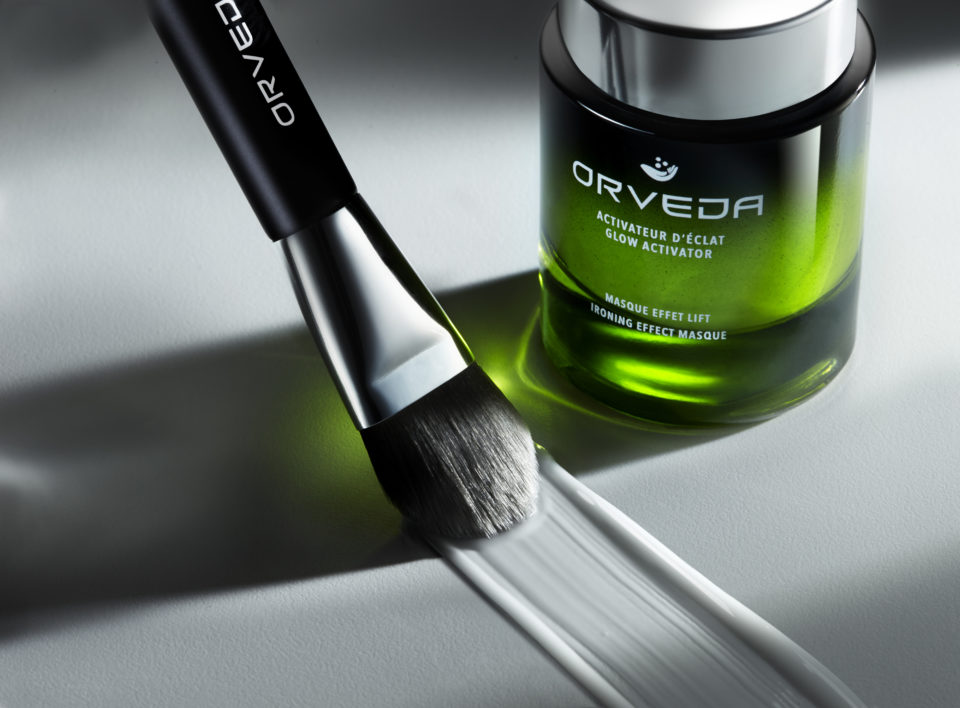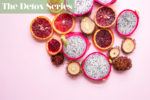The Beauty & The Biotech How Orveda is Revolutionizing Skincare with Science
Bio-fermentation? Prebiotics? Vegan? Organic? What does it all mean? Founder of Orveda Skincare Sue Y Nabi breaks it down for us.
More often now, we hear key words like “biotechnology” or “bio-fermentation” when we browse for the perfect cleanser, cream, serum, scrub, peel or mask to address the even longer list of problems our skin seems to have. When a brand is marketed as organic, what does that even mean? Is it the same thing as vegan? Does that mean it’s also sustainable? Why are these terms even significant?
With something so personal yet so visible as our skin, it’s important that we stay educated with what we choose to put on it every day and what long-term effects these choices will have, not only on our skin, but also on our environment. To answer some of these meandering questions, as well as to gain some insight on the increasingly critical role technology is playing in skincare, BWB brought on Sue Y Nabi – founder of revolutionary skincare brand Orveda, and previously Worldwide President of both L’Oréal Paris and Lancôme.
How do you incorporate technological science to create active ingredients?
At Orveda, we have merged one of the most ancient ways to create active ingredients with one of the most cutting-edge methods at the forefront of skincare technology today: Biotechnology, also called bio-fermentation (think yoghurt production from milk or Kombucha fermented black tea, which is highly concentrated in our Healing Sap).
This process had been used by nature to produce actives for millions of years and has now been perfected by human minds and hands into the best way to produce highly-efficient actives that work with the skin; a process that is also green and sustainably sourced.
Biotechnology uses bacteria and yeast as nanofactories to produce any kind of green actives in any amount without any ecological impact on the environment. By only using tiny amounts of botanicals as a source, biotechnology is a highly sustainable process.
Less efficient ways to produce actives are:
- Chemistry that can produce actives in huge amounts is controversial and the process of creation is not always green or sustainable.
- Extracting actives from the botanical world directly like many organic brands do is also not sustainable in the long term. Imagine if all beauty brands on earth were to become organic only, there would be not enough fields on earth and we would exhaust all natural resources.
How has the study of our microbiome opened the doors to a new world of cosmetics and skincare?
Before beginning to understand the importance of our microbiome, beauty brands were all about aggressing the skin and its superficial barriers (think acids, scrubs, peels, lasers) to get results via a “forced” and artificial regeneration of the skin. This is not only harmful in the long run, but it has also led to a whole generation of American women prematurely aged with sensitized skins today because of overusing peels when they were younger.
Cleansing had also turned into over-washing/over-foaming the skin with alkaline agents to get that squeaky clean feel and touch that was in fact a total stripping of the skin’s natural protecting oils and led to the increase of skin’s pH (skin is best when it is slightly acidic 5-6), and therefore the destruction of the healthy layer of bacteria protecting your skin from inflammation, acne, premature aging, and a dull skin tone.
It was war on our skin!
[Orveda’s line of cleansers] are enriched with prebiotics to feed the protective layer of healthy bacteria to keep a balanced skin ecosystem and allow the skin to heal or fight by itself.
Today at Orveda, we have created a whole line of cleansers that activate skin’s healthy glow but do not contain foaming or alcalizing sulfates or soaps – only gentle, botanical cleansers that will remove the dirt, pollution, and any makeup, but not your protective layer of good oils.
They are also all enriched with prebiotics to feed the protective layer of healthy bacteria to keep a balanced skin ecosystem and allow the skin to heal or fight by itself.
All of our treatments, like our best-selling Eye Unveiler 422, are enriched with the perfect mix of skin’s natural protective oils (for instance, the Eye Unveiler 422 comprises of 4% sterols, 2% ceramides and 2% essential fatty acids to mimic the biological makeup of healthy skin) to recreate a healthy skin oil layer where the good bacteria is enhanced in order to protect the skin from inflammation. And as we all know, inflammation is the mother of all diseases and premature skin aging.
All our products contain prebiotics and have the cleanest formulations possible to take care of the healthy layers of protection, oils and microbiome (no parabens, no phenoxyethanol, no alcohol, no phthalates, no animal extracts, no artificial colorants, no irritants and no pH disturbing molecules) and mainly use actives from biofermentation.
How do you predict technology will benefit the beauty industry in the future?
Technology is going to become more and more important in the beauty industry and I am a strong believer in progress that comes from science. Going back to the age of caves and producing skincare in your kitchen is certainly fun, but this will never give you a scientifically researched and proven result when targeting complex concerns like dark spots, fine lines and lack of firmness.

Originally from Los Angeles, Alicia lived in Shanghai for 11 years before moving back to the states to attend the University of Miami, where she graduated with a bachelor’s degree in public relations and minors in art and philosophy. Currently residing in New York City, Alicia applies her knowledge of strategic communication and design in her career. She enjoys painting, rugby, exploring, and more often than not, you’ll find her petting someone’s dog.









